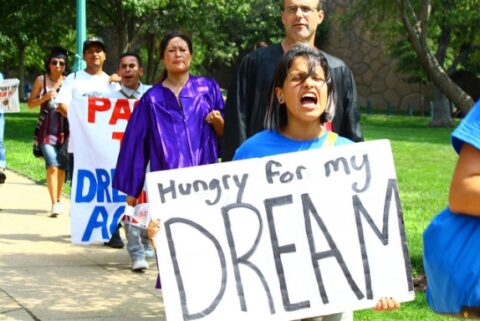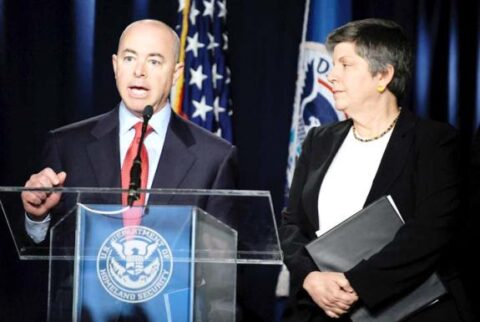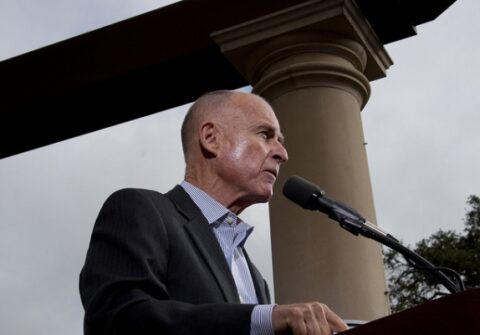Immigration Reform

50 States Work on Immigration Legislation While Congress Refuses to Act
The National Conference of State Legislatures (NCSL) recently released an analysis of the number of immigration-related proposals introduced at the state level between January and June of 2011. NCSL found that more immigration-related bills (1,592) were introduced in the first half of 2011 than in the same time period in 2010 (1,374). While the bills weren’t all bad—representing both a mixed bag of punitive and progressive proposals—they tell a bigger story of 50 states grappling with a broken immigration system while Congress sits back and watches. Read More

What’s the Value of Keeping Undocumented Youth in the Shadows?
The real life psychological ramifications of young immigrants struggling with their unauthorized status are often glossed over in the larger immigration debate. In a recent journal article, Learning to Be Illegal: Undocumented Youth and Shifting Legal Contexts in the Transition to Adulthood, University of Chicago professor Roberto G. Gonzales uses 150 interviews with young Latino adults to examine how unauthorized youth deal with their legal status as they come of age. Gonzales finds that as unauthorized immigrant children transition into adulthood, many “learn to be illegal,” figuring out how to exist in a society that was once welcoming, but now prohibits their participation. Read More

Washington Farmers Fear Economic Impact of National E-Verify Bill
Much like farmers in Georgia who are experiencing labor shortages due to HB 87—the state’s new immigration law which mandates use of E-Verify—growers in Washington state fear that a similar, national E-Verify bill will have a devastating economic impact on the state’s agricultural workforce. This week, the Washington Growers League said that a national E-Verify law would prohibit many of the state’s current farm workers from harvesting crops, which would in turn devastate the industry, slashing production and forcing consumers to buy produce out of state. Rep. Lamar Smith (R-TX) introduced the mandatory E-Verify bill (the Legal Workforce Act or H.R. 2164) back in June. Read More

DHS Acknowledges that U.S. Immigration Policy Needs to Spark Economy and Attract Entrepreneurs
By PAUL ZULKIE, PRESIDENT OF THE AMERICAN IMMIGRATION COUNCIL Yesterday, Department of Homeland Security (DHS) Secretary Janet Napolitano and U.S. Citizenship and Immigration Services (USCIS) Director Alejandro Mayorkas announced a series of policy initiatives designed to “fuel the nation's economy and stimulate investment” by attracting foreign entrepreneurs who can invest in fields of high unemployment, create jobs, and form startup companies. It is encouraging that USCIS recognizes that immigrant entrepreneurs and innovators are a key to continued growth and to maintaining America’s competitive edge into the 21st century. It’s important that the agency keep this recognition in mind as it adjudicates visa petitions and applications. Read More

Department of Justice Seeks Injunction Against Alabama’s Anti-Immigrant Law
Yesterday, the Department of Justice (DOJ) filed yet another lawsuit against extreme state-level immigration laws—this time against Alabama’s HB 56. Already the subject of a class action lawsuit filed by the ACLU and other immigrants’ rights groups, Alabama’s HB 56 would require local law enforcement to verify the immigration status of those stopped for traffic violations, public schools to determine the immigration status of students, employers to use E-Verify and makes it a crime to knowingly rent to, transport or harbor undocumented immigrants. In its motion for a preliminary injunction, however, the DOJ argues that Alabama’s law, much like Arizona’s, interferes with the federal enforcement of immigration laws and places undue burdens on local schools and federal agencies. Alabama’s law was signed into law by Governor Robert Bentley in June and slated to take effect September 1. Read More

Governor Brown Signs Only Half of California DREAM Act
BY CAITLIN PATLER, DOCTORAL STUDENT AT UCLA'S DEPARTMENT OF SOCIOLOGY This week, California Governor Jerry Brown signed into law Assembly Bill (AB) 130. This new law allows undocumented students enrolled in California’s public colleges and universities to receive privately-funded university scholarships from non-state funds.. While AB 130 is a significant step for the Golden State, it is only one of two bills known collectively as the California DREAM Act. Without its companion bill, AB 131, the legislation does little to address the systemic inequality facing undocumented students in California. Read More

Restrictionist Group Strikes Out in Latest Report on Children of Diplomats
BY MARGARET D. STOCK, COUNSEL TO THE FIRM, LANE POWELL PC The Center for Immigration Studies (CIS) has been known for coming out with some odd reports over the years—but their latest is notable for its factual and legal flaws—and for argument that we should expand several different government bureaucracies to chase down the dozen or so children born in the U.S. each year to diplomats with immunity. The CIS report, “Birthright Citizenship for the Children of Diplomats?,” is about the one group of people that everyone agrees is exempted from birthright citizenship—the children born to foreign diplomats. It claims that, even though these people are not U.S. citizens, they are de facto citizens because they are able to receive Social Security numbers. If you look at the facts, their argument doesn't hold water. Read More

Microsoft, Experts Stress Need for High-Skilled Immigration in Senate Committee Hearing
While the House Judiciary Committee focused on a very different part of immigration yesterday, its Senate counterpart held a hearing on “The Economic Imperative for Enacting Immigration Reform.” In the hearing, witnesses testified that immigration reform that makes it easier for high-skilled immigrants to come work in the U.S. is not only good policy, but an economic necessity. Brad Smith, General Counsel and Senior VP for Legal and Corporate Affairs at Microsoft testified that smart immigration reform could create more jobs for American workers, something the economy needs as our nation struggles to recover from the recession. Read More

Lamar Smith’s HALT Act Would Limit Administration’s Ability to Administer Humanitarian Relief
Today, the House Judiciary Subcommittee held a hearing on the “Hinder the Administration’s Legalization Temptation Act” (HALT Act), introduced by House Judiciary Chairman Lamar Smith (R-TX). The bill, which some are calling a political response to recent ICE memos, would suspend the Administration’s ability to exercise certain discretionary forms of immigration protections and relief until January 21, 2013—the day after the first Obama administration comes to an end. Read More

President Obama Promises to Keep Promising Immigration Reform at Latino Conference
Amid frustrated shouts of “Yes, You Can!” from advocates in the audience, President Obama again deferred the power to fix our broken immigration system to Congress today during a speech at the National Council of La Raza’s (NCLR) annual conference. After highlighting his administration’s bona fides on issues important to the Latino community—appointing Justice Sonia Sotomayor on the Supreme Court, naming Labor Secretary Hilda Solis to his cabinet and delivering health care to millions of Latino families—the President turned to the thorny issue of our broken immigration system—a system many advocates believe the President should fix using the power of executive authority. Read More
Make a contribution
Make a direct impact on the lives of immigrants.
